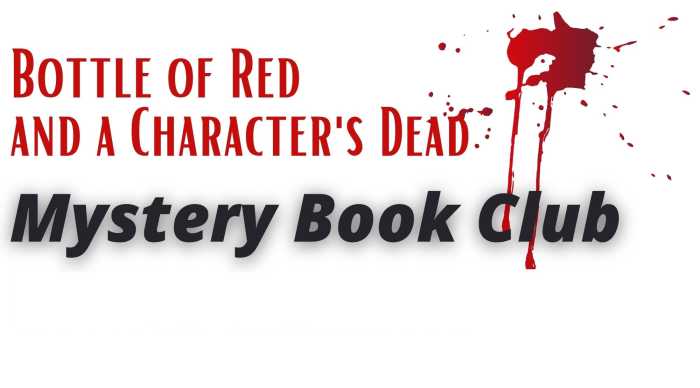Meet Richard Esposito, Journalist & Author

After 34 years as a print and broadcast journalist, Richard Esposito now is an author with three books under his belt. Even so, he is a journalist at heart and still approaches writing that way. Dan’s Pspers talked with Esposito recently, following his appearance at the hughly successful Authors Night benefit in East Hampton.
“When you’re a working journalist, an editor tells you that he needs twelve hundred words by six p.m.,” Esposito says of the discipline of writing every day. “You research, then you write and then you go home and have dinner and wait for the phone to ring with questions. Then you’re on to the next story. When you’re writing a book, there is no daily deadline. They tell you they want three hundred and thirty pages by October. There’s a lot of fishing you can do between now and October.”
Esposito’s latest book is Jimmy Breslin: The Man Who Told the Truth, (Crime Ink, October 2024, $30), about the legendary New York City columnist who was as comfortable with world leaders as he was with serial killers and single mothers. Esposito says it took him a long time to decide to write about his former co-worker.
“People come up to me all the time and say they’ve got a book in them,” Esposito says. “I tell them to leave it there. You may have a book that you want to write, but do you have a subject that anyone wants to read? That’s the question: why would someone want to read about you or the subject? That’s the hard part.”
Esposito says it took him years to decide to write about Breslin. Then, he and his colleague, reporter Ted Gerstein, researched the man and his nearly 5,000 columns for three years. He then took 16 months writing and editing. But that last 16 months came only after the arduous process of finding someone who wanted to publish the book.
“It took five years to find someone to buy [publish] it, and I have a very good agent,” Esposito remembers. One rainy afternoon he was sitting in the basement of Mysterious Press bookshop on Warren Street in Manhattan talking to a long-time acquaintance, the crime and mystery publisher Otto Penzler, when Penzler asked him if he had a project he was eager to write. Esposito told him and sight unseen he agreed to publish the book based on his belief in Esposito’s ability to tell a story. “We’d known each other for forty years and had never done a project together. The book sold out on its first press run. That is pretty good, really.”
Esposito, who is married and splits time between New York City and Hampton Bays, says he gets his writing done while in the Hamptons.
“Long Island is spiritually home,” Esposito says. “I do my research in New York City and my writing on Long Island. My pattern is to write for three days and then digest what I’ve written. Take a day or two off to pace or fish and then get back to it..”
“My basic schedule is that I get up, go to the gym, go fishing, write and then read what I wrote,” says Esposito, who began writing in the Hamptons as a young reporter. “We basically lived in a shack, me and another Newsday reporter. We loved it.”
The Breslin book is his first biography and perhaps his favorite book. His other books are Bomb Squad: A Year Inside the Nation’s Most Exclusive Police Unit and Dead on Delivery: Inside the Drug Wars, Straight From the Streets, which he wrote with Robert M. Stutman.
“It is a wonderful thing to grow at my age,” Esposito says of the process of researching and writing the Breslin book following 17 years as a newspaper reporter and another 17 as a network television reporter and producer.
Esposito first met Breslin as a 24-year-old copy boy. Someone he knew described Breslin as “someone who scared the children,” meaning the young reporters.
“He could be frightening,” Esposito says. “He also could be out of time [step] with others, but he also had such a sense of racial justice, class justice. His sense of right and wrong was so strong. He could be difficult, annoying. He berated his editors. He could be so difficult and nasty at times, but he also had a heart of gold A hard head and a warm heart.
“Jimmy was abandoned as a kid, and that never left him,” Esposito says. “He inhabited so many different versions of himself. He’d been the guy who couldn’t make rent and tried to talk the landlord out of evicting him. He’d been the abandoned boy, he’d been the son of an improverished single mother, the nephew of an alcoholic cop. He could sit down next to someone and understand what they were going through. He then could put it into the poetry of a cabdriver for you. But, it was his single-minded focus on his work that could make him repellant. I remember when he got suspended and I had to call and tell him. What he said about the editor can’t be repeated.”
And, this is what Esposito means about a subject that people want to read, not just a book he wants to write.
“Yes, he was famous, but he also was complex,” Esposito says of why he chose to write about Breslin. “He was a great story teller. But importantly, he told great stories. That is, someone once said, the difference between ‘Three Blind Mice’ and ‘King Lear.’ And the stories he chose to tell and the way he chose to tell them is what made Breslin an important journalist and an important subject for a book that is at its heart also about how to tell the truth. But, books don’t pay the rent — until they do.”
To pay the rent, as he puts it, Esposito founded the corporate communications and reputation management consulting firm Roundhouse Strategies. His clients include the largest global entertainment, brand and media companies. That is what pays the rent, even after writing an acclaimed book.
“So, if you really want to write a book, write it, if that makes you happy,” Esposito says.
Looking back on the news landscape that Jimmy Breslin inhabited, Esposito explained succinctly the columnist’s relevance today.
“The mechanism of how we deliver the news may change, but the need for information remains,” Esposito says. “I think if Jimmy were here, he’d complain about the state of journalism, he was always bitching about it, but he’d be writing. He’d figure out what he needed to do to tell a story. His ego demanded that he write. He would have figured it out.”
Todd Shapiro is an award-winning publicist and associate publisher of Dan’s Papers.








